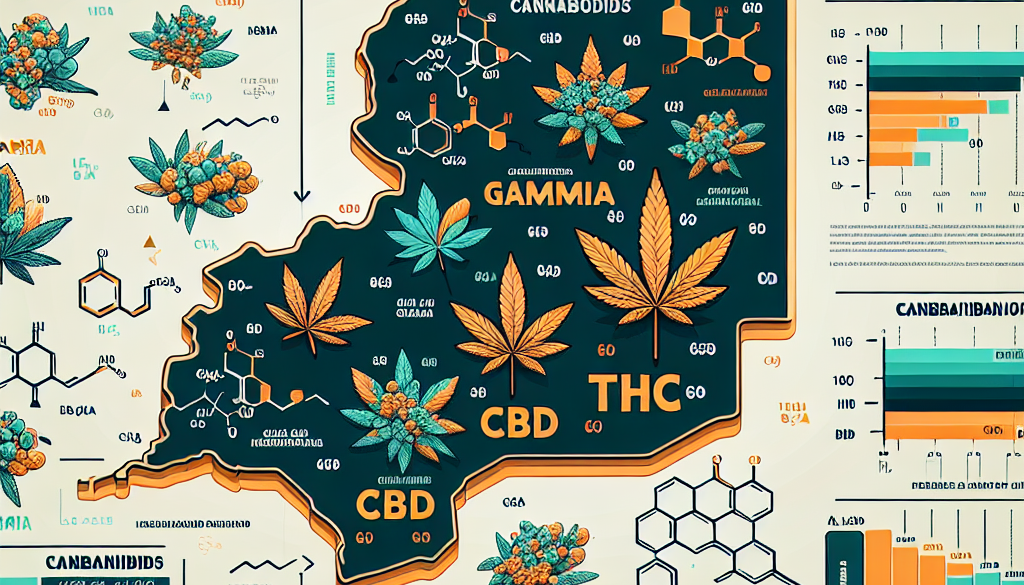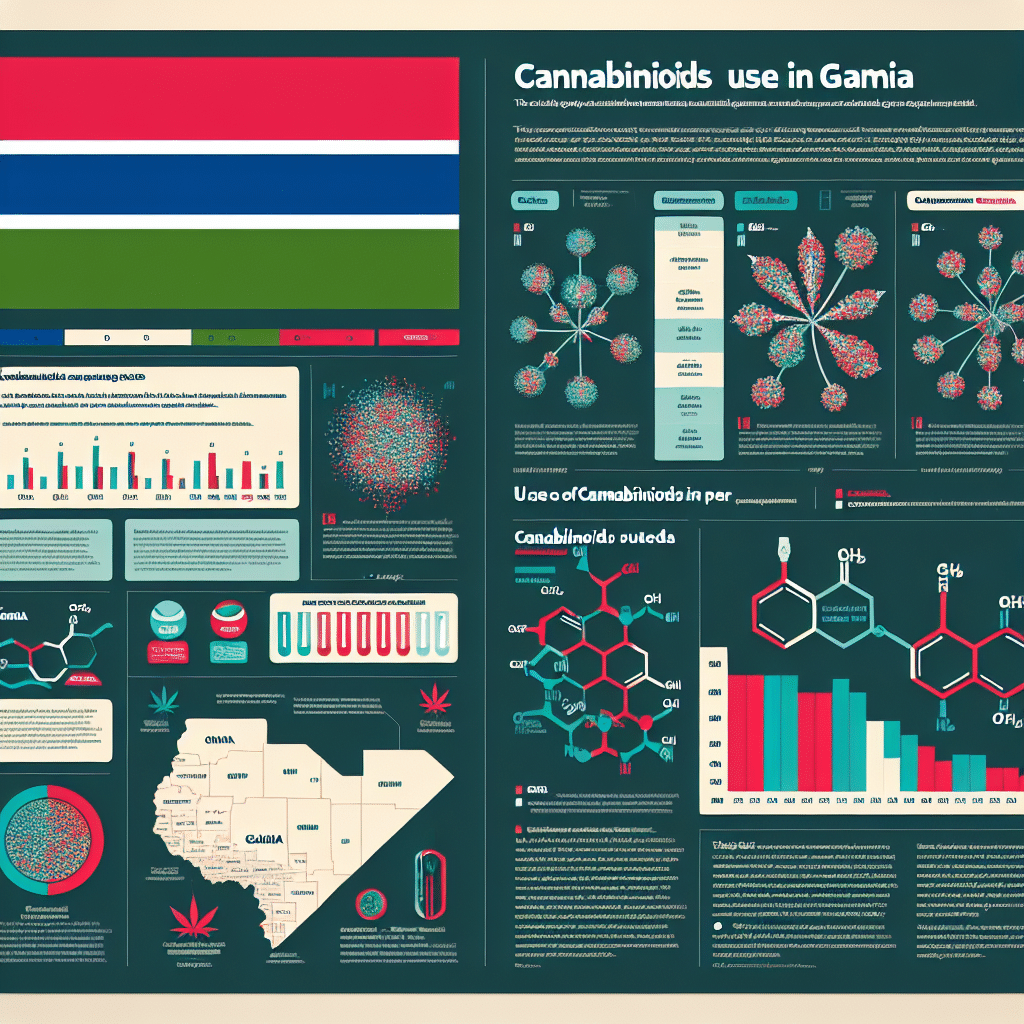CBG Gambia: Cannabinoid Use and Laws
-
Table of Contents
- CBG in Gambia: Exploring Cannabinoid Use and Legal Landscape
- Understanding CBG and Its Significance
- The Legal Status of CBG in Gambia
- Regulatory Challenges and Opportunities
- Case Studies and Global Perspectives
- Implications for Public Health and Safety
- Conclusion: Key Takeaways on CBG in Gambia
- Discover ETchem’s Protein Products
CBG in Gambia: Exploring Cannabinoid Use and Legal Landscape
The use of cannabinoids has become a global topic of interest, with various countries grappling with the challenges and opportunities presented by these compounds. Among these, Cannabigerol (CBG) has emerged as a cannabinoid with significant potential. This article delves into the use of CBG in Gambia, examining its legal status, potential benefits, and the broader context of cannabinoid laws in the country.
Understanding CBG and Its Significance
Cannabigerol (CBG) is a non-psychoactive cannabinoid found in the cannabis plant. Often referred to as the “mother of all cannabinoids,” it serves as a precursor to other cannabinoids such as THC and CBD. Unlike THC, CBG does not produce intoxicating effects, making it an area of interest for therapeutic use without the high associated with cannabis.
- CBG is known for its potential anti-inflammatory, antibacterial, and neuroprotective properties.
- Research on CBG is still in its infancy, but early studies suggest it may have applications in treating conditions such as glaucoma, inflammatory bowel disease, and anxiety.
The Legal Status of CBG in Gambia
The legal landscape for cannabinoids in Gambia is complex and evolving. As of my knowledge cutoff in 2023, cannabis and its derivatives are generally illegal in the country. However, the legal status of specific cannabinoids like CBG may not be explicitly defined, leading to a gray area in terms of regulation and enforcement.
- Gambian law primarily focuses on the prohibition of cannabis cultivation, distribution, and use.
- The legal framework may not differentiate between psychoactive and non-psychoactive cannabinoids, potentially lumping CBG with other controlled substances.
Regulatory Challenges and Opportunities
The ambiguity surrounding the legal status of CBG in Gambia presents both challenges and opportunities. On one hand, the lack of clear regulations can hinder the development of a legitimate CBG market and research initiatives. On the other hand, it provides an opportunity for policymakers to craft legislation that recognizes the therapeutic potential of non-psychoactive cannabinoids.
- Regulatory clarity could attract investment in cannabinoid research and product development.
- Establishing a legal framework for CBG could pave the way for medical cannabis programs that benefit patients in need.
Case Studies and Global Perspectives
Examining the experiences of other countries with CBG regulation can provide valuable insights for Gambia. For instance, in nations where CBG is legal, there has been a surge in research and product availability. These case studies highlight the importance of a balanced approach to cannabinoid regulation that protects public health while allowing for innovation and access to beneficial compounds.
- Some countries have established licensing systems for the cultivation and research of non-psychoactive cannabinoids.
- Regulatory models that differentiate between psychoactive and non-psychoactive cannabinoids have been successful in other jurisdictions.
Implications for Public Health and Safety
The potential health benefits of CBG and other cannabinoids cannot be fully realized without considering public safety. Any move towards legalizing CBG in Gambia must be accompanied by measures to ensure product quality, prevent misuse, and educate the public about the effects and proper use of cannabinoids.
- Quality control regulations are essential to ensure that CBG products are free from contaminants and accurately labeled.
- Public education campaigns can help dispel myths and provide evidence-based information about CBG.
Conclusion: Key Takeaways on CBG in Gambia
In conclusion, while the use of CBG in Gambia is currently under the shadow of broader cannabis laws, there is potential for change. With the global shift towards recognizing the therapeutic benefits of cannabinoids, Gambia has the opportunity to revisit its policies and potentially embrace a future where CBG and similar compounds are accessible for their medicinal properties. Key takeaways include the need for regulatory clarity, the potential for medical cannabis programs, and the importance of public health safeguards in any legal framework for cannabinoids.
Discover ETchem’s Protein Products
In addition to exploring the world of cannabinoids, it’s important to consider the role of proteins in health and wellness. ETchem, a reputable Chinese Collagen factory manufacturer and supplier, offers a range of high-quality collagen products. These include marine, fish, bovine, chicken, and various types of collagen, catering to diverse industries such as nutraceuticals, pharmaceuticals, and food and beverage.
- ETchem’s collagen products are characterized by their neutral taste and instant solubility.
- The company provides tailor-made collagen powder and finished collagen nutritional supplements.
- ETchem is trusted by leading global brands and Fortune 500 companies for their protein needs.
For more information or to sample their products, please contact ETchem and email karen(at)et-chem.com today.
About ETChem:
ETChem, a reputable Chinese Collagen factory manufacturer and supplier, is renowned for producing, stocking, exporting, and delivering the highest quality collagens. They include marine collagen, fish collagen, bovine collagen, chicken collagen, type I collagen, type II collagen and type III collagen etc. Their offerings, characterized by a neutral taste, instant solubility attributes, cater to a diverse range of industries. They serve nutraceutical, pharmaceutical, cosmeceutical, veterinary, as well as food and beverage finished product distributors, traders, and manufacturers across Europe, USA, Canada, Australia, Thailand, Japan, Korea, Brazil, and Chile, among others.
ETChem specialization includes exporting and delivering tailor-made collagen powder and finished collagen nutritional supplements. Their extensive product range covers sectors like Food and Beverage, Sports Nutrition, Weight Management, Dietary Supplements, Health and Wellness Products, ensuring comprehensive solutions to meet all your protein needs.
As a trusted company by leading global food and beverage brands and Fortune 500 companies, ETChem reinforces China’s reputation in the global arena. For more information or to sample their products, please contact them and email karen(at)et-chem.com today.





